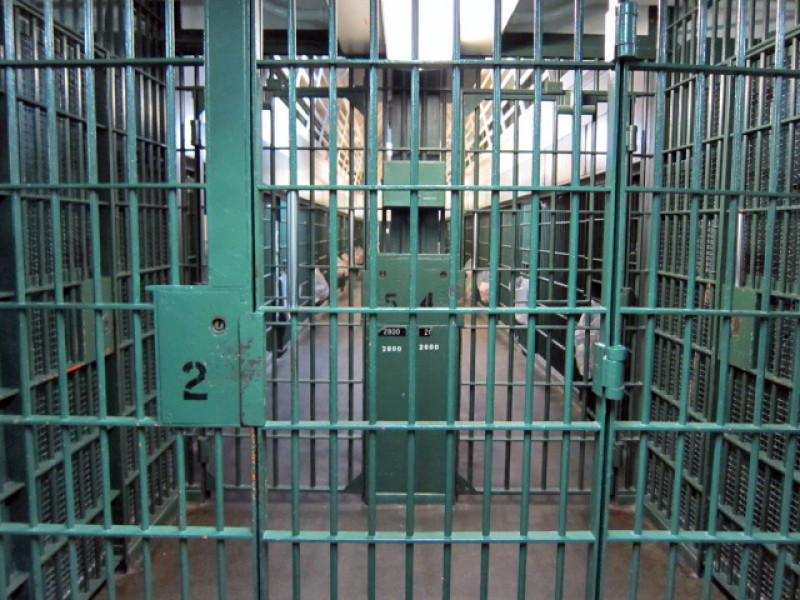As such, Prop. 47’s backers aren’t fighting the changes.
“None of the legislative discussions occurring around Proposition 47 have the potential to undermine the initiative,” said Lenore Anderson, who co-authored the measure, chaired the ballot campaign and directs Californians for Safety and Justice, a progressive policy group.
She said supporters aren’t surprised the Legislature is looking at these issues, and that most of the bills aren’t going to substantively change what Prop. 47 is aiming to achieve: a criminal justice system that focuses on locking up only serious offenders, like those convicted of violent crimes, and not people addicted to drugs who commit petty crimes.
The measure was retroactive, allowing people in prisons or jails to ask for reduced sentences as well as people with past convictions who are no longer incarcerated. So far, more than 115,000 people have filed petitions asking courts to reduce their sentences from felonies to misdemeanors, according to the Judicial Council of California. And more than 3,200 have been released from state prisons.
Mark Zahner, CEO of the California District Attorneys Association, denied that his group's support for the changes in Prop. 47 amounts to an attempt to undo the law.
“If these were attempts to undermine Proposition 47, they were ill-conceived and weak attempts,” he said. “What we are talking about are little nuanced corrections that change very little about Prop. 47 at the end of the day. It’s not an attempt to undermine, but enhance the measure and work within the purviews of 47.”
Among the bills:
- Assembly Bill 46 and Senate Bill 333 both initially aimed to make possession of so-called date-rape drugs, such as GHB and ketamine, a felony. But critics pointed out that some people use those drugs recreationally, so the measures were both changed to make clear they apply only to someone who has the intent to commit a sexual assault. Since Prop. 47 always excluded anything beyond simple drug possession, the bills no longer apply to the ballot measure.
- AB390 is the bill Prop. 47 supporters have the most concern about. It would change the state’s DNA collection policy so that anyone convicted of any of the crimes reduced from felonies to misdemeanors by Prop. 47 would still have to submit their DNA to the state database. Anderson, of Californians for Safety and Justice, said her group opposes the bill because it looks only at misdemeanors covered by Prop. 47, like petty theft, while ignoring far more troubling convictions for misdemeanors such as battery or domestic violence. She wrote in a recent letter to the bill’s author that AB390’s “sole focus on the six crimes in Proposition 47 implies that it is not motivated by thoughtful policy analysis.”
- AB1415 and SB347 would make it a felony for someone convicted of the newly classified misdemeanors to have a gun. Backers of the bills say that while Prop. 47 already stated this, it didn’t change the state code.
Anderson and other supporters aren’t opposing AB1415 and SB347. But they argue the measures, as well as the two pieces of legislation dealing with stealing a firearm, are simply unnecessary -- because California already has so many laws on the books dealing with guns that a prosecutor will almost certainly always be able to charge someone with a felony.
Anderson said the issues were discussed “at length during the campaign,” and that there’s “no question that any gun-related activity can and should be pursued as a felony.” She said opponents are simply interpreting the law differently than proponents.
San Francisco District Attorney George Gascón, one of the initiative’s backers, was more blunt. He said you have a “better chance of finding flying unicorns than you do of finding a situation” where someone stole a gun and could be charged only with a misdemeanor. He called any arguments to the contrary “disingenuous.”
But Zahner, of the district attorneys group, said that if everyone agrees that stealing a gun should be a felony, the law should explicitly say so. He also said that prosecutors agree with Anderson, that more misdemeanors should be subject to DNA collection laws, but that it’s better to add some now than none at all.
Zahner noted that Prop. 47 isn’t the only recent drastic change to California’s criminal justice system. In 2011, the state’s realignment law shifted responsibility for many lower-level felons from state prison and parole to county jails and probation. And in 2012, voters approved Proposition 36, which revised California’s tough “three strikes” law.
He said after decades of voters pushing for tougher criminal justice laws, the pendulum has now swung wildly in the other direction, a change to which it’s difficult for many in law enforcement to adjust.
"Unfortunately, people look at criminal justice as a cause, when really it's a reaction to everything else that’s messed up in society,” he said. “Prosecutors are frustrated, they are trying do the right thing, and elected district attorneys are frustrated. They are elected to keep people safe and they feel this is an erosion of the law that takes away their discretion. Their ability to approach how particular communities want things handled is being taken away, and it is frustrating for them, and it is a sea change.”
Anderson, who worked as policy director for Kamala Harris when Harris was San Francisco’s district attorney, said supporters of Prop. 47 want the same things as law enforcement: safe communities.
“California overrelied on its prison-first approach -- it built 22 prisons over a 25-year period, and increased prison spending by 1,500 percent … a skyrocketing amount of money and energy went into prison expansion, and you have to ask what we got. We got a high recidivism rate, and a depletion of resources for the prevention of crime at the local level,” she said.
